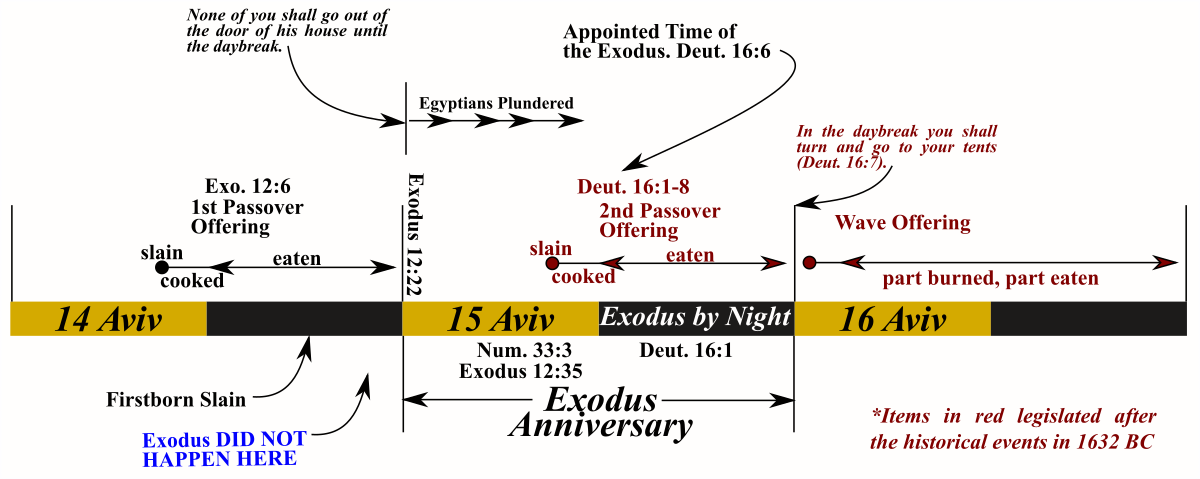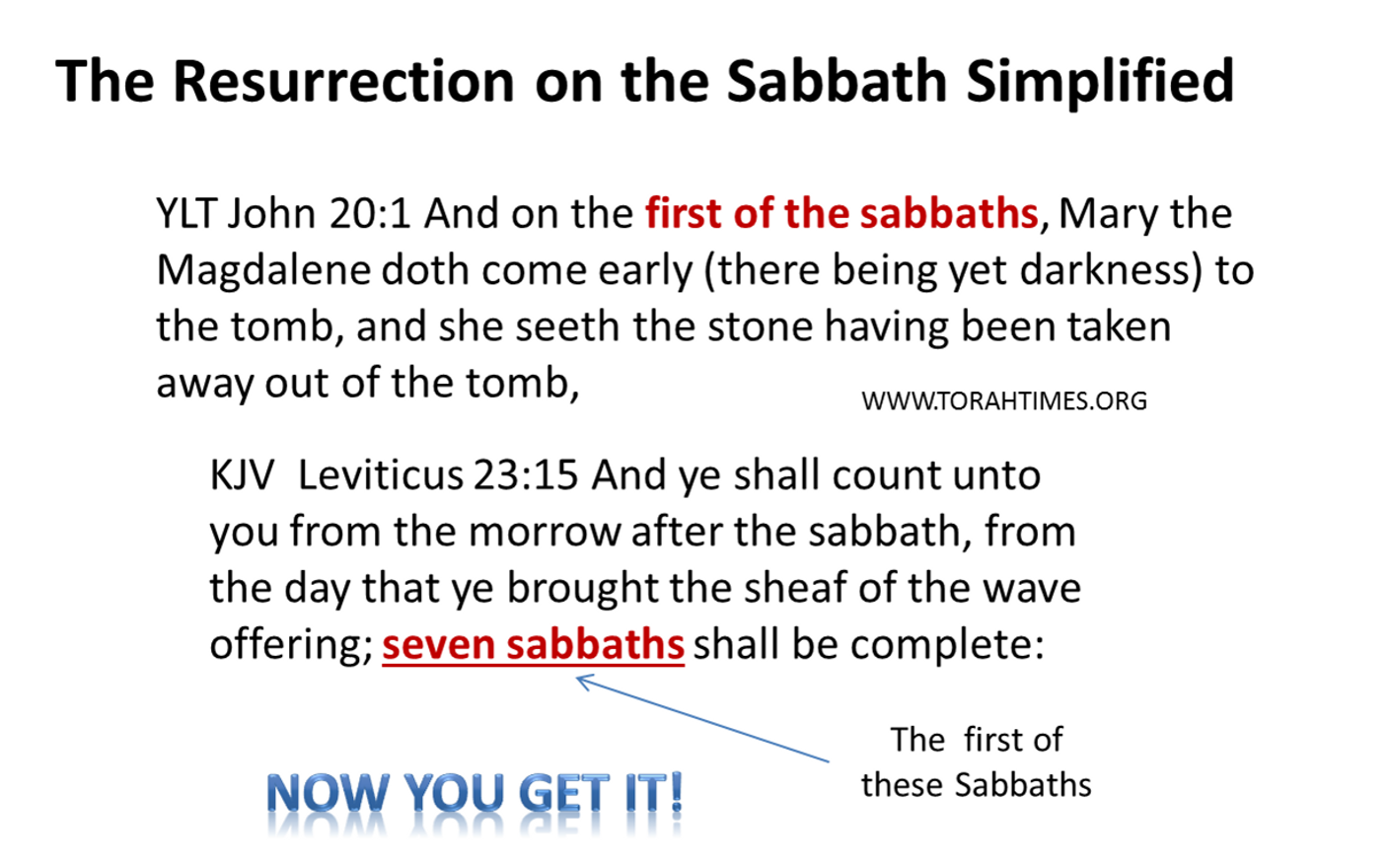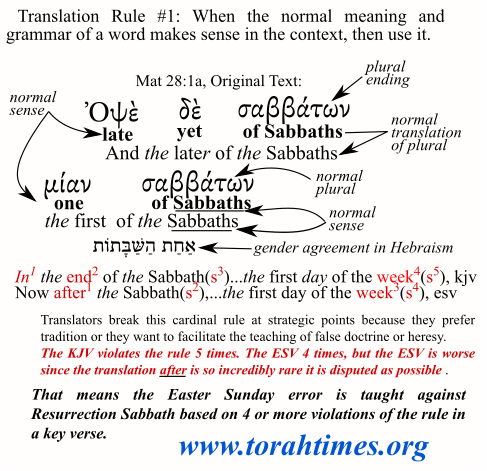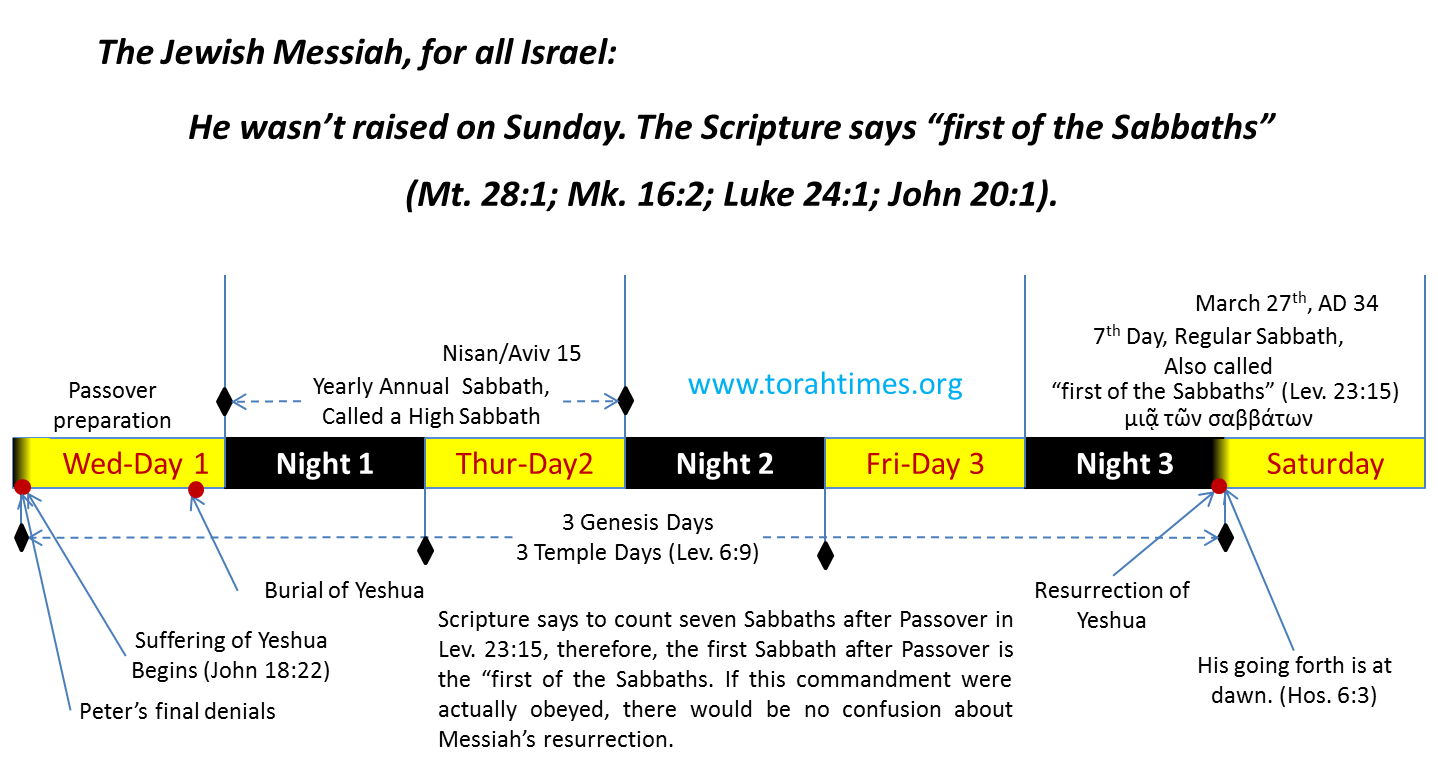Jonah was fast asleep having gone down into the sides of the ship. Perhaps he was swallowed by the large fish around 6 am. It really isn’t all that critical whether it was
three 12 hr days and three 12 hr nights in that order or three 12 hr nights and three 12 hr days in that order. My own opinion is that it was at least three 24 hr days or Mark wouldn't have said,
"after three days rise again" (Mark 8:31). Although, Mark 9:31 says,
"and when He has been killed, He will rise three days later."
The following Jewish daily timeline charting (6 am to 6 am) with the weekly Sabbath beginning 12 hrs earlier at 6 pm on the 6th Day implies that the actual weekly Sabbath is 36 hrs. However, only 12 hrs is daytime with 24 hrs of nighttime.
Traditional Judaism has many errors. One of these as pointed out by Eben Ezra and Jacob Milgrom (JPS Torah Commentary) is the teaching that a day begins at sunset. This view is not according to the Messianic Faith. Only Sabbaths begin at sunset. The rest of days begin at dawn …
According to Daniel Gregg (and other researchers) the timeline for 24 hr Hebrew day was originally thought to be from 6 am to 6 am. Daniel Gregg believes this timeline was still in effect at the time of Yeshua with only the weekly Sabbath beginning on the evening (6 pm) of the 6th day (Friday). Using this timeline
Yeshua’s resurrection occurred during the waning hours (12 midnight to 6 am) at the end of the weekly Sabbath . Using a Roman calendar
Yeshua’s resurrection occurred during the first hours (12 midnight to 6am) of the 1st day of the Roman week (Sunday), before sunrise.
Jewish 4th Day
6 am to 6 am =
last 18 hrs of a Wednesday (6 am to 12 noon to 12 midnight)
12 midnight to 6 am =
first 6 hrs of a Thursday
6 am to 6 pm = 12 hrs (3-4 hrs of daylight remained after Yeshua’s death)
6 pm to 6 am = 12 hrs nighttime ~
1st Hebrew Night
(beginning of the weekly Sabbath on Friday evening)
Aviv 14 = Preparation Day
Jewish 5th Day
6 am to 6 am = l
ast 18 hrs of a Thursday (6 am to 12 noon to 12 midnight)
12 midnight to 6 am =
first 6 hrs of Friday
6 am to 6 pm = 12 hrs daytime ~
1st Hebrew Day
6 pm to 6 am = 12 hrs nighttime ~
2nd Hebrew Night
(beginning of the weekly Sabbath on Friday evening)
Aviv 15 = 1st Day of Unleavened Bread
Jewish 6th Day
6 am to 6 am =
last 18 hrs of a Friday (6 am to 12 noon to 12 midnight)
(
6 pm to 6 am was the beginning of the weekly Sabbath on the 6th day)
12 midnight to 6 am =
first 6 hrs of Saturday
6 am to 6 pm = 12 hrs daytime ~
2nd Hebrew Day
6 pm to 6 am = 12 hrs nighttime ~
3rd Hebrew Night
(beginning of the weekly Sabbath on Friday evening)
Aviv 16 = 2nd Day of Unleavened Bread
Jewish 7th Day
6 am to 6 am =
last 18 hrs of a Saturday (6 am to 12 noon to 12 midnight)
12 midnight to 6 am =
first 6 hrs of a Sunday
6 am to 6 pm = 12 hrs daytime ~
3rd Hebrew Day
(Yeshua appeared to His Disciples during the daytime)
6 pm to 6 am = 12 hrs nighttime
Aviv 17 = 3nd Day of Unleavened Bread
Any additional hours beyond two 24 hr days is considered
“on the third day”
“after three days” when taking into account the 3-4 hrs of remaining daylight on Aviv 14
Jewish 1st day
6 am to 6 am =
last 18 hrs of a Sunday (6 am to 12 noon to 12 midnight)
12 midnight to 6 am =
first 6 hrs of a Monday
Perhaps some of the Scribes, Sadducees, Pharisees and even followers of Yeshua were familiar with both the Jewish calendar and the Roman calendar being that Israel was under Roman rule. It’s evident from the NT that many of the ruling Scribes, Sadducees, Pharisees and others feared Rome more than they feared God. Is it not possible that Matthew, Mark, Luke and John took into account both the Jewish calendar and the Roman calendar when recording the events surrounding the Passover of Unleavened Bread, First Fruits and Yeshua’s Resurrection for both Messianic Jews and Messianic Greek Believers in Yeshua as the only begotten Son of God.
Assumed a Roman day (during the time of Yeshua) began at 12 midnight (as it does now). Yeshua was probably arrested around midnight which would be the beginning of a Roman Thursday; while 6 hrs still remained of Daniel Gregg's 4th Jewish day (6 am to 6 am). If not then the above timelines would need to be adjusted accordingly.





